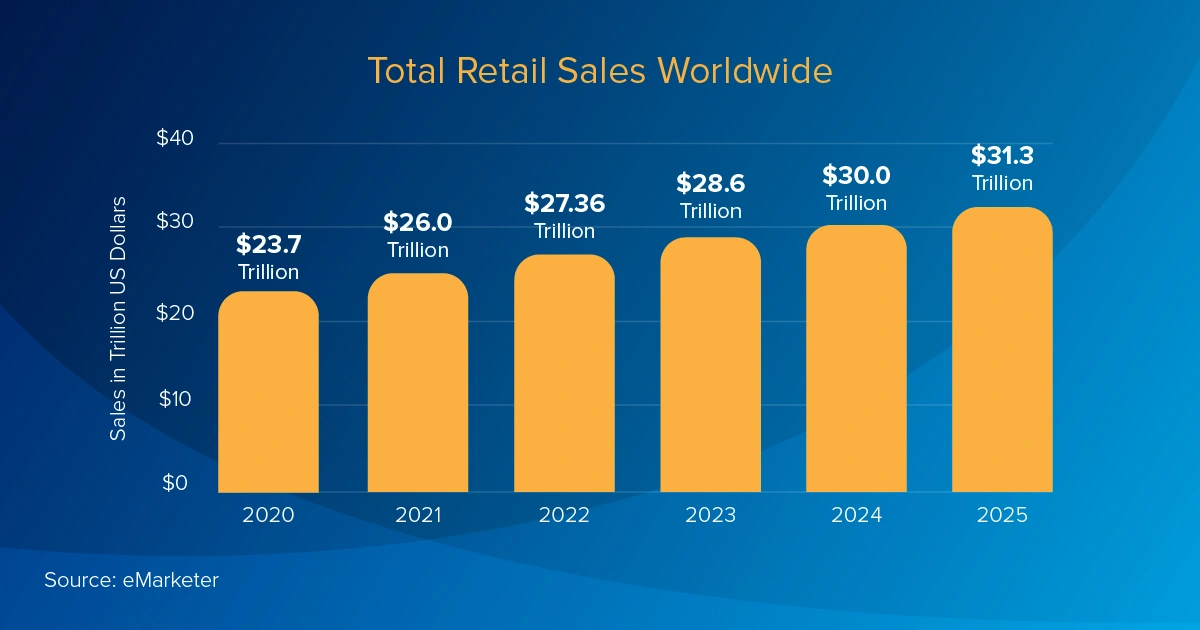
Revenue Management is critical to profitability and retail success
“Show me the money!” Most people can recollect a famous line from a popular movie or song that’s about money (can you?). The topic of money inspires a wealth of ideas, emotions and behaviors. That’s why money has been the subject of movies, music, culture and conversation throughout history as money evolved from bartering to stamped coins to paper and now digital forms of one or another.
No matter what form it takes, we still love money, though our view of money is changing as we adopt more convenient ways to transact and manage it. Today, retail money management has evolved and become more inclusive of all your revenue sources, not just the traditional ones. Revenue Management is a methodology that describes how to manage “total revenue” more strategically using data science to control costs, generate demand and increase profits.
"Revenue Management first emerged as “yield management” decades ago when the travel and hospitality industries needed a new approach to solving a common business challenge: how to maximize airplane seat capacity and hotel room revenue to meet fluctuating demand for fixed inventory."
Money management is now digital
Over the years, new revenue management approaches have evolved to solve now common business challenges:
- Digital payment systems have replaced legacy cash machines
- Chip-based credit cards now encrypt transactions to improve security
- Tap and pay convenience has dramatically improved checkout speed
- In-app payments are now frequently embedded in mobile apps and social media platforms
- Movies and music are rarely purchased but consumed on-demand via subscription services and automatically billed as a “convenience”
- Layaway has been replaced with new financial services offering point-of-sale “buy-now-pay- later” loans
Soon, cryptocurrencies like Bitcoin will become more broadly used and accepted by retailers. Early adopters like The Home Depot and Whole Foods have introduced these payment options. In fact, more than 100 countries are currently evaluating eliminating paper money in favor of Central Bank Digital Currencies (CBDCs).
The time to embrace Revenue Management is now
The global retail industry is estimated to generate ~28 trillion USD in revenue this year. Despite high volumes, profit margins will remain relatively low, especially for sectors like grocery. Revenue Management solutions can deliver single-digit improvements to your net margins, which can sometimes be the difference between profit and loss for many low-margin sectors.
Revenue Management in retail applies data and analytics to predict demand swings and adjust pricing to increase revenue from your underlying inventory. Using sophisticated business tools, processes, tactics and strategies to optimize your resources, prices, margins and customer value, the methodology helps you create operational efficiencies and improve processes and productivity to lower costs and ultimately drive higher profit margins. To achieve this, a disciplined approach is needed to plan, execute, analyze and optimize all areas that impact revenue aligned with your enterprise objectives for sales and profit.
It also involves selling the right product to the right customer at the right price and time through the right channels with the best cost efficiency. As you transition beyond basic price optimization and into Revenue Management, data will become even more important to your decision-making processes. What’s more, it can help across all retail channels, including brick and mortar, ecommerce and the Metaverse.
Data and decisions go hand in hand
As a retailer, you’re challenged with finding efficient and effective ways to operate and deliver profitable growth. In a fast-moving digital world, legacy systems and spreadsheets limit your ability to see and share data in real-time to make informed decisions that can significantly impact your top and bottom lines. It’s important to capture the right data and leverage the insights from your analytics to make informed decisions and quickly respond to market changes and ongoing disruptions.
Real-time access to data also improves collaboration among teams. Key stakeholders from finance and pricing to sales and marketing will have the visibility and agility needed to make faster, better decisions, expedite approvals and gain negotiation power with vendors and suppliers.
Areas where automated Revenue Management can help:
- Eliminate slow manual processes and spreadsheets
- Simplify and track complex vendor contracts and purchasing rebates
- Guide and optimize pricing and markdown management
- Improve visibility and performance of trade promotions and optimize the use of funds
- Streamline omnichannel management, sales incentives and loyalty programs
Next steps: streamline, automate and differentiate
To achieve greater profitability and retail success, you must continually innovate finding new ways to delight your customers and differentiate yourself from your competitors. Revenue Management offers a structured approach to managing and executing your corporate strategies in a cost-efficient and profitable way.
Using a common framework to manage the full life cycle of your programs from planning, execution and analytics, Revenue Management uses business rules and automation to manage complex end-to-end business processes in ways spreadsheets and manpower simply cannot do. The goal is to improve the visibility, accuracy and timing of your strategies in the most efficient and expedient way to ensure every dollar spent or earned is really driving growth and not just additional costs.


